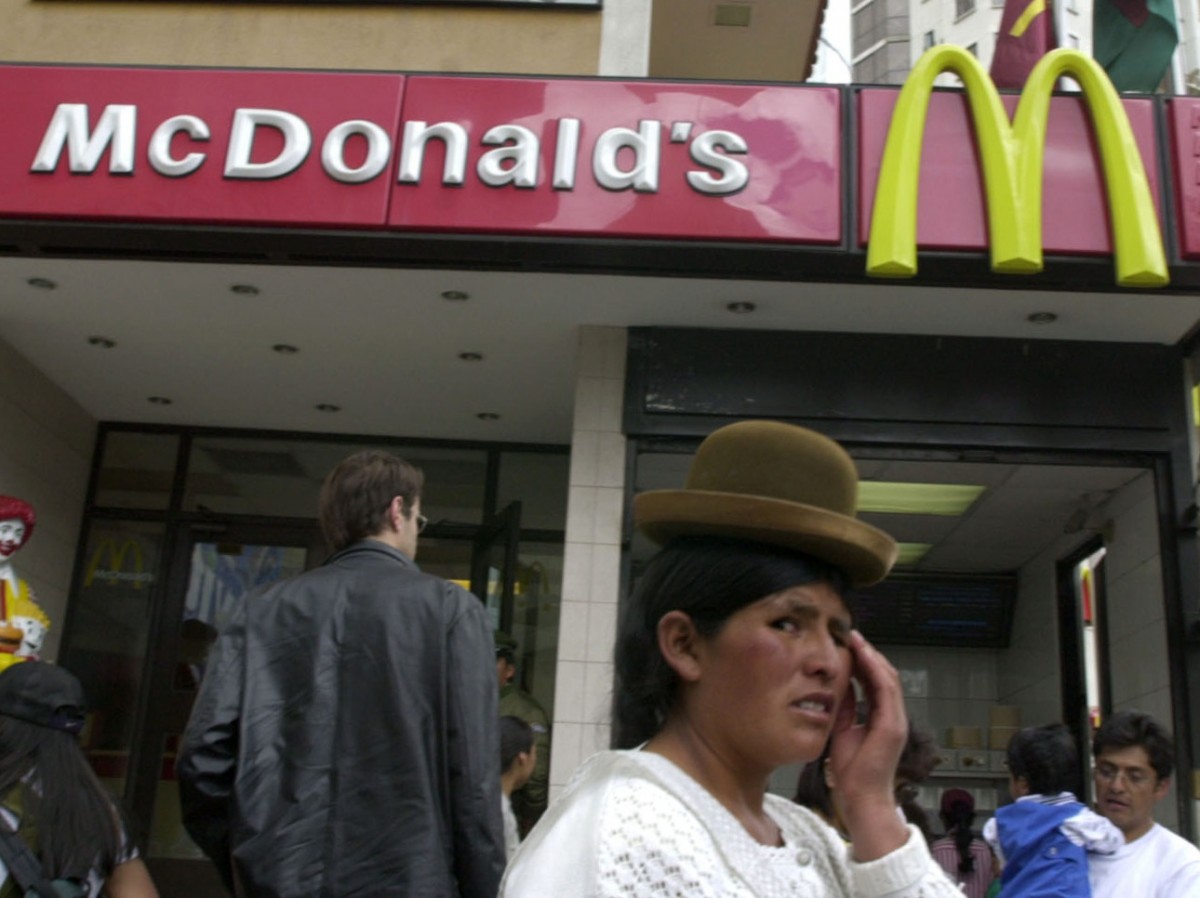
When it comes to McDonald’s, Bolivians aren’t “loving it.” In fact, sales at McDonald’s locations across Bolivia were so low that the international chain has been forced to close all locations with no plans to reopen any stores in the country. According to a recent report from Natural News, all eight McDonald’s restaurants closed after operating at a loss for 14 years.
Local sources say the closings occurred in 2002 but remain relevant given Bolivia’s ongoing shift away from processed and genetically modified foods under President Evo Morales.
With more than 30,000 locations in 123 countries and territories worldwide, how did Bolivia manage to fend off the golden arches, a near-ubiquitous sign of globalization?
The primary reason for this failure stems from a deep cultural rejection of processed foods, illustrated in the hit 2011 documentary, “Why Did McDonald’s Go Bankrupt in Bolivia?”
“Culture won over a transnational [company], over the globalized world,” said director Fernando Martinez in a conversation with BBC Mundo.
Even populations in big cities like La Paz are “close to the land” and eat dishes with traditional products, “with intense and strong flavors and after many hours in the kitchen.”
With a large impoverished population in rural areas, cost also played a major role in the poor performance of the restaurants, since most people simply couldn’t afford to eat there.
Martinez reports that the cheapest menu item cost 25 bolivianos, or about $3. Conversely, a complete lunch at a market in La Paz typically costs about 7 bolivianos, or less than $1.
Esther Choque, an indigenous woman waiting for a bus to arrive outside a McDonald’s restaurant, told Natural News, “The closest I ever came was one day when a rain shower fell and I climbed the steps to keep dry by the door. Then they came out and shooed me away. They said I was dirtying the place. Why would I care if McDonald’s leaves [Bolivia]?”
The company even tried to integrate local influences into the menu, including llajwa, a sauce used by many Bolivians as a seasoning.
The Andean News Network cautions that news of McDonald’s closing doesn’t mean that Bolivia has become a foodie’s paradise, as there are still dozens of other fast food restaurants operating in major cities.
“In any case, the presence of Burger King, Subway, fried chicken chains and hot dog joints, not to mention Bolivian specific fast food providers such as salteñerias, on every block of most Bolivian cities suggests that the slow food movement would be unwise to look to Bolivia as a model nation of consumers,” the network reported.
Although he does not appear to have played a role in the McDonald’s decision, President Evo Morales announced plans in 2010 to phase out crops containing genetically modified organisms, a move that could be seen as a blow to Monsanto and other agribusinesses that sell GMO seeds.
“Obviously, we cannot support the assertions of the giant agribusiness consortia which see hybrid and GM seeds as the solution for the problem of world hunger,” said Oscar Mendieta-Chávez, adviser in the Rural Development and Lands Ministry.
“These GM seeds are not the product of nature or of God, and therefore rather than being of benefit to the campesino farmer, they risk contaminating wild, local genetic resources as well as consumers,” Martinez added in a statement to Radio Mundial.
“The fast food of the west is a great harm to humanity,” Morales said in February. “Major international food companies seek to control food production and dominate global markets.”
Morales cautioned that the sudden interest in quinoa could lead to problems with cultivation and alteration of an Andean grain that has been harvested in South America for centuries.
“They impose their customs and their foods. They seek profit and to merely standardize food, produced on a massive scale, according to the same formula and with ingredients which cause cancers and other diseases,” he said, according to The Raw Story.


